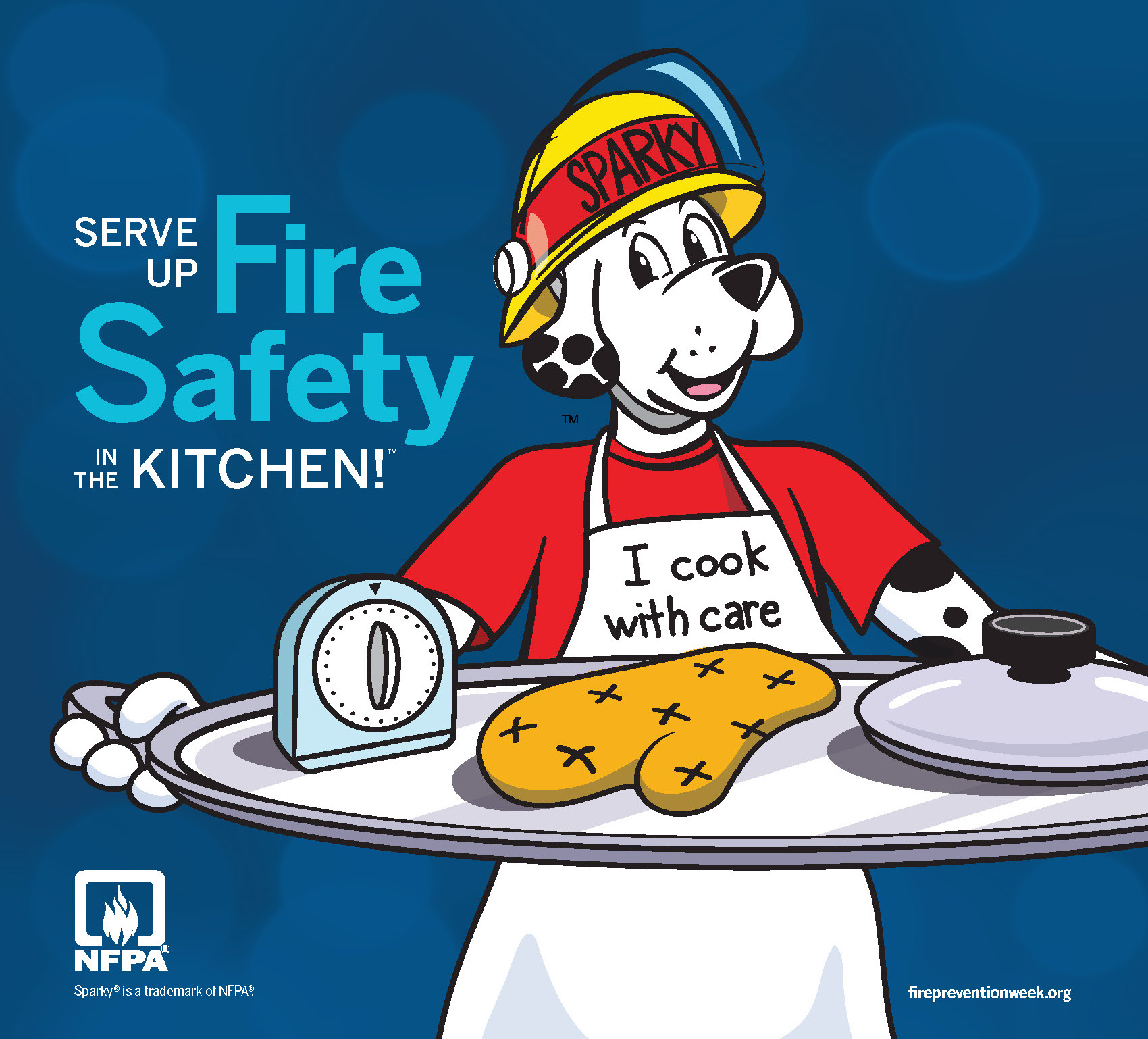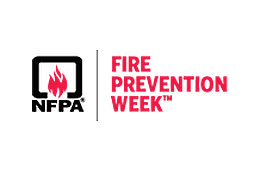
National Fire Prevention Week

October 4-10 is National Fire Prevention Week
Did you know?
Cooking is the #1 cause of home fires and home fire injuries. Further, unattended cooking is the leading cause of fires in the kitchen. Cooking in the kitchen is this year’s NFPA (National Fire Protection Association) topic for discussion, in preventing home fires. Below you’ll see many suggestions regarding fire prevention, as suggested by the NFPA for National Fire Prevention Week.
Cooking
- Cooking is the leading cause of home fires and home fire injuries. Thanksgiving is the leading day for fires involving cooking equipment.
- The leading cause of fires in the kitchen is unattended cooking.
- Stay in the kitchen when you are frying, boiling, grilling, or broiling food.
- If you are simmering, baking, or roasting food, check it regularly and stay in the home.
- Always keep a lid nearby when cooking. If a small grease fire starts, slide the lid over the pan and turn off the burner. Leave the pan covered until it’s cool.
- Keep anything that can catch fire away from your stovetop.
- Loose clothing can hang down onto stove burners and catch fire. Wear short, close-fitting, or tightly rolled sleeves when cooking.
- Have a “kid-free zone” of at least 3 feet (1 metre) around the stove and areas where hot food or drink is prepared or carried.
Smoke Alarms
- Smoke alarms detect and alert people to a fire in the early stages. Smoke alarms can mean the difference between life and death in a fire.
- Working smoke alarms cut the risk of dying in a home fire in half.
- Install smoke alarms in every sleeping room, outside each separate sleeping area, and on every level of the home, including the basement.
- Test smoke alarms at least once a month using the test button.
- Make sure everyone in the home understands the sound of the smoke alarm and knows how to respond.
Home Fire Escape Planning and Practice
Home fire escape planning should include the following:
- Drawing a map of each level of the home, showing all doors and windows
- Going to each room and pointing to the two ways out
- Making sure someone will help children, older adults, and people with disabilities wake up and get out
- Teaching children how to escape on their own in case you cannot help them
- Establishing a meeting place outside and away from the home where everyone can meet after exiting
- Having properly installed and maintained smoke alarms
- Pushing the smoke alarm button to start the drill
- Practicing what to do in case there is smoke: Get low and go. Get out fast.
- Practicing using different ways out and closing doors behind you as you leave
- Never going back for people, pets, or things
- Going to your outdoor meeting place
- Calling 9-1-1 or the local emergency number from a cell phone or a neighbor’s phone Heating
- Heating equipment is one of the leading causes of home fires during the winter months. Read more about electrical fire safety.
- Space heaters are the type of equipment most often involved in home heating equipment fires.
- All heaters need space. Keep anything that can burn at least 3 feet (1 meter) away from heating equipment.
- Have a 3-foot (1-metre) “kid-free zone” around open fires and space heaters.
- Purchase and use only portable space heaters listed by a qualified testing laboratory.
- Have a qualified professional install heating equipment.
- Maintain heating equipment and chimneys by having them cleaned and inspected by a qualified professional at least once a year.
About Fire Prevention Week
Since 1922, the NFPA has sponsored the public observance of National Fire Prevention Week. In 1925, President Calvin Coolidge proclaimed Fire Prevention Week a national observance, making it the longest-running public health observance in our country. During Fire Prevention Week, children, adults, and teachers learn how to stay safe in case of a fire. Firefighters provide lifesaving public education in an effort to drastically decrease casualties caused by fires.
Fire Prevention Week is observed each year during the week of October 9th in commemoration of the Great Chicago Fire, which began on October 8, 1871, and caused devastating damage. This horrific conflagration killed more than 250 people, left 100,000 homeless, destroyed more than 17,400 structures, and burned more than 2,000 acres of land. Learn more about this tragic event in Chicago here.
The National Fire Protection Association (NFPA) is a global nonprofit organization, established in 1896, devoted to eliminating death, injury, property, and economic loss due to fire, electrical, and related hazards.
Source: NFPA.org / National Fire Protection Association
